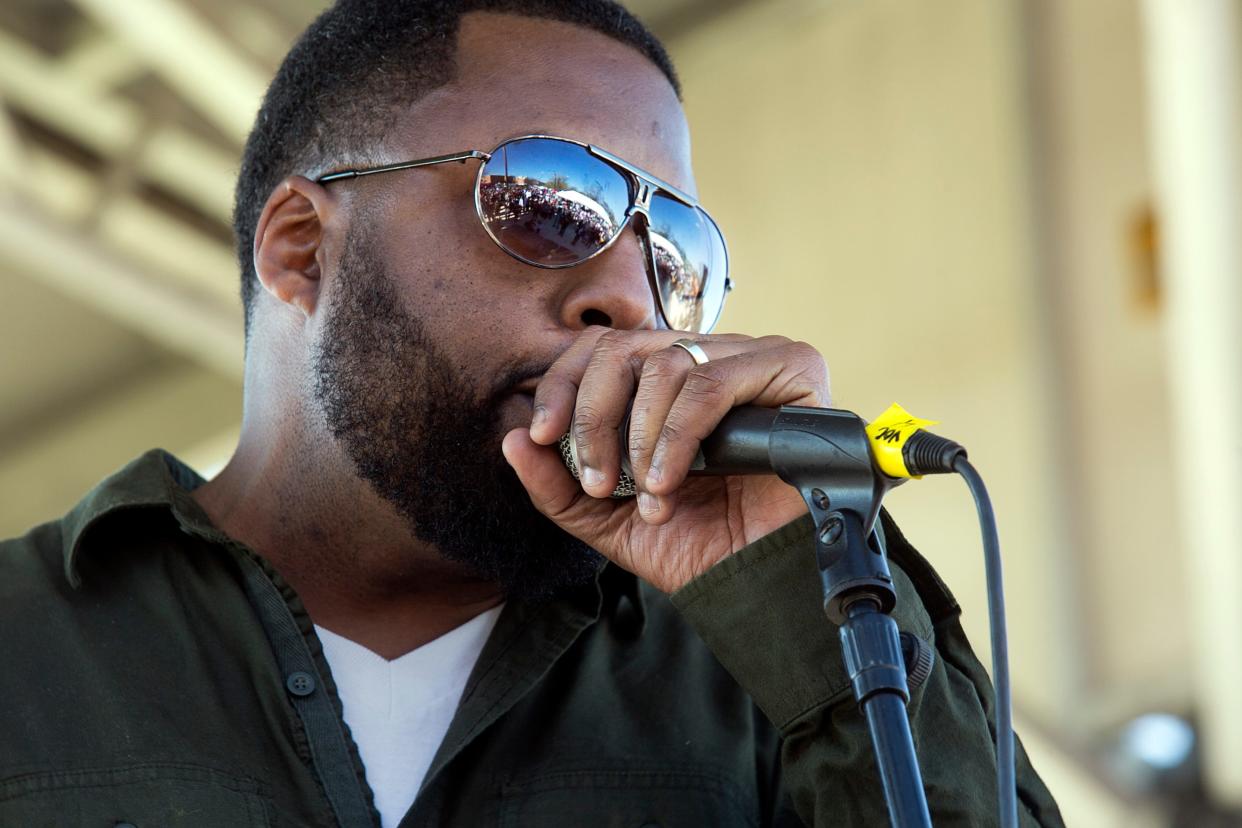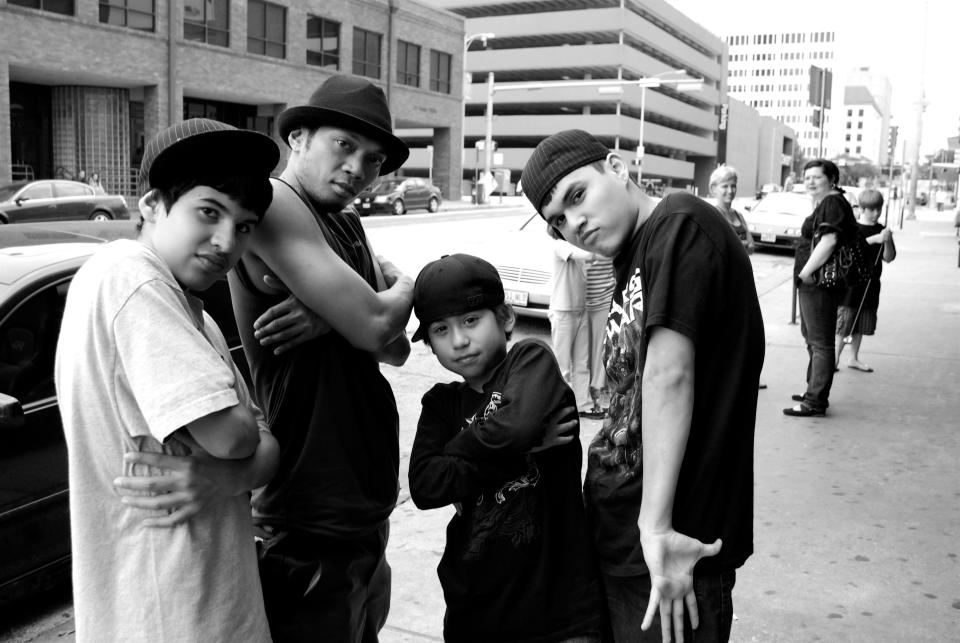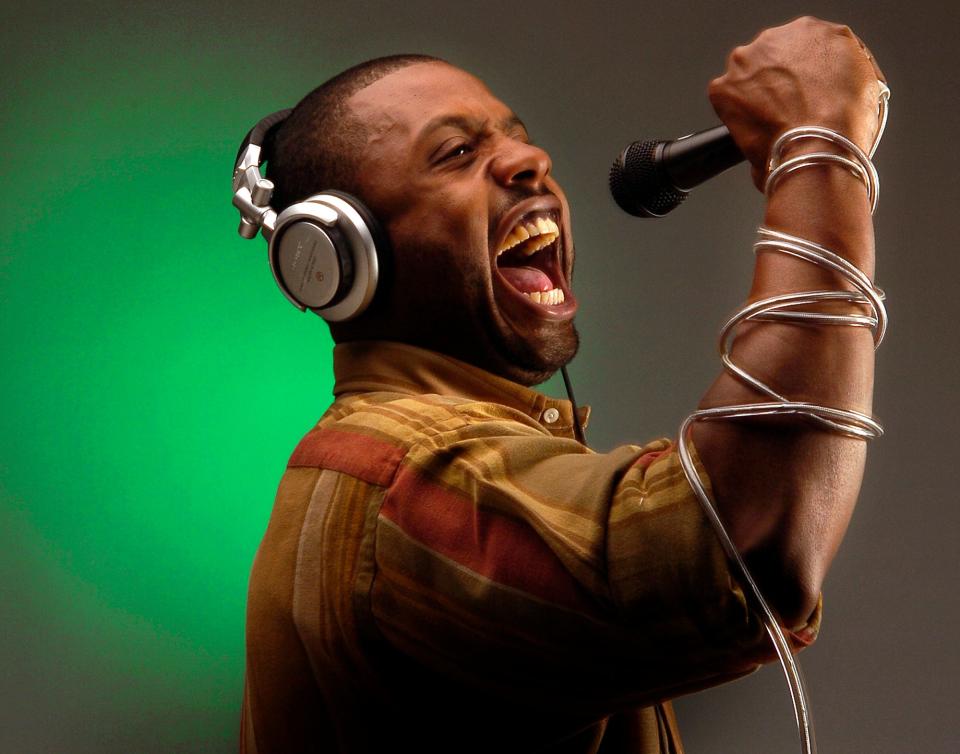Hip-hop Grew Up: Austin rapper and noted scholar Bavu Blakes on the culture at 50

On August 11, 1973, Cindy Campbell rented the recreation room of her apartment building at 1520 Sedgwick Ave. in the Bronx for a back-to-school jam. With a cover charge of $.25 for the ladies and $.50 for the guys, her aim was to make enough money to go back to class with a fresh new wardrobe.
Campbell tapped her brother Clive, an aspiring DJ who called himself Kool Herc, to get the party live. Inspired by the sound systems he saw as a child in Kingston, Jamaica, Kool Herc pioneered a technique of isolating drum breaks on old funk and soul records, the part that made the kids go wild. Using two copies of the same record, he looped the rhythm, giving birth to the breakbeat, the building block of hip-hop music.
The back-to-school bash was a smashing success. Kids spilled from the rec room into a nearby playground, creating the first in a series of block parties. That night, hip-hop was born.
Rapper Bavu Blakes has been a leader in the Austin hip-hop scene since the late '90s Hip-Hop Humpday era. He's also a noted scholar and lecturer who co-founded the Hip-Hop Grew Up movement. Blakes will mark the occasion of hip-hop's 50th anniversary with a free Classic Hip Hop Live performance from 6 to 8 p.m. August 11 at ACC Highland's Recital Hall. Joined by emcee Anastasia Hera and a full band, he will play two 30-minute cover sets.
We touched base with Blakes to talk about hip-hop's lasting impact as a cultural force.
Deborah Sengupta Stith: In its early days, hip-hop was largely discounted as a viable art form by mainstream press and music industry gatekeepers. Now it's the most popular form of music on the planet. What did the early haters miss about hip-hop’s broad appeal?
Bavu Blakes: They thought it was something from nothing, but you can’t get something from nothing! They missed that it’s a synthesizing force, sometimes a unifying force. Maybe they thought it wasn’t music, thought it was some lower art form. They missed that hip-hop is evidence of an eternally excellent, resilient and powerful spirit. Imagine ancient Black history boiling up in a modern context, getting in your face, boldly confronting you, and demanding engagement even when you ain’t trying to hear it. They missed how hip-hop adapts to local contexts. They missed how impactful the spirit within the global majority could impact the globe. And those early haters included Black radio and media, too.
What are three pivotal moments that reshaped the trajectory of hip-hop music and/or hip-hop as a culture?
This is not a top three, just a list of three seminal pivots: access to mixers with crossfaders, access to cassette recording and duplication, and Cash Money Records taking over for the ’99 and the 2000 (the dawn of the superstar Southern rapper era).

Same question, but specific to Texas: Three moments that reshaped the trajectory of hip-hop in the Lone Star State?
"Mind Playin Tricks on Me." Screw tapes. B-Boy City!
FROM 2019: A history of B-Boy City, Austin's famed breakdancing competition
In the late ‘90s and early ‘00s, hip-hop vs. rap was an ongoing argument on message boards and within various virtual and actual scenes. What was at the root of these arguments and was there ever any validity to them?
Funny you ask about this, because I opened a July 21 keynote in Buffalo saying how both “hip-hop vs. rap” and “hip-hop as just rap” are ridiculous arguments. I think the root of the “hip-hop vs. rap” argument is self-righteousness. Otherwise it’s like arguing “writing vs. pencils.” We know rap is technically a subset of hip-hop. Rap is the music most closely associated with hip-hop culture. So it makes no real sense ...
Who are a few undersung artists or industry figures who had an outsized impact on hip-hop as a form?
Sylvia Robinson, The Roots, and the element of graffiti.
Hip-Hop Grew Up is your brand. Why did you choose that name and what are some major milestones in hip-hop's growth?
We watched hip-hop’s presence and impact grow to the age of a parent/grandparent in our lifetime. So it’s about that personified story, and how hip-hop endured through its 40s — now entering its 50s. It’s also about us as the hip-hop generation who grew up native to the emergence, ascent and dominance of hip-hop … how we have renegotiated our relationships with hip-hop as we grew up. Then, finally the question of our value as first-generation hip-hoppers to the youth of today.
Any evidence of hip-hop as an agile, permeating fixture in world culture counts as a major milestone to me. You know it’s major when so many people and organizations that already have “something” seek to emulate and exploit the creation that come from “nothing.”

What are some areas where it could still mature?
Its relationship to women and children for sure. Its ability to self-critique. Its ability to continue the tradition of loudly and boldly speaking for itself. Yet we’re talking about something so massive that it always depends on what angle you’re viewing it from and what lens you view it through.
More: 'We were so ready': DJ Maseo talks about De La Soul's online debut after Trugoy's death
What is the most exciting thing to you about where hip-hop is today and what do you hope to see in the next 50 years?
I love that the hip-hop generation and people our age are the decision-makers across all sectors of society and industry. In the next 50 years, I hope to see participants and pioneers continue speaking up as primary sources to shape the historical narratives, to determine the historical continuity. We know what we know and how we know it and we’ve lived what we’ve lived. We know what happens when corporate America's entertainment industry and mainstream media tell it in a largely unauthorized form. I also hope to see all of hip-hop’s niches become nations — deeper roots, longer branches and taller trees.
This article originally appeared on Austin American-Statesman: Austin rapper Bavu Blakes reflects on the 50th anniversary of hip-hop

